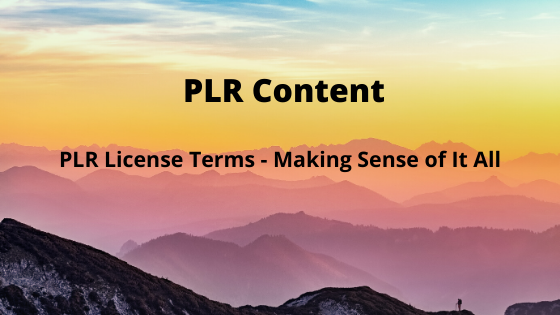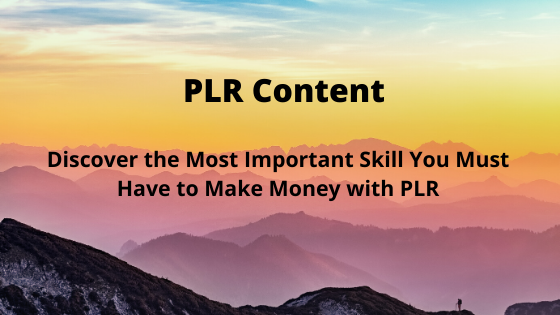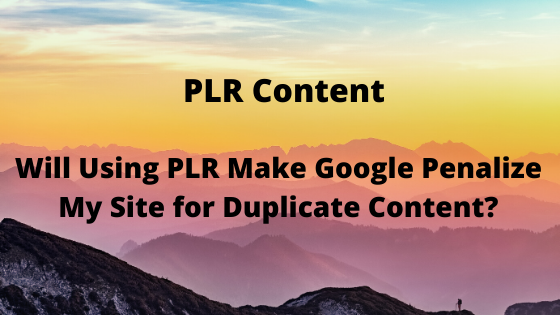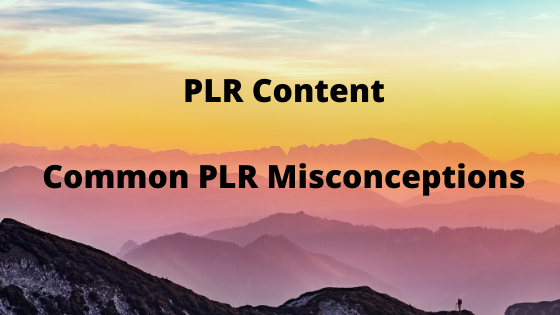PLR License Terms – Making Sense of It All

Usually, when you purchase a private label rights (PLR) package, you’ll notice that it comes with a license and a list of terms. The rights and terms will determine how much flexibility you have when using the content. PLR License Terms – Making Sense of It All. The PLR license terms are usually displayed on the sales page for the product so you know exactly what you’re getting. You’ll know what you can and cannot do with the PLR. In some cases, the license terms may seem convoluted and even contradict each other. Very often, what happens here is that PLR buyers constantly try to circumvent the license rights by doing sneaky stuff.
Once the PLR vendor discovers this breach of terms, they’ll add a new term to their list of terms to prevent future buyers from flouting the rules. In this article, you’ll discover what the terms actually mean and why they are there.
The most common license terms that appear on many PLR sales pages are:
1. You may not use my name with this PLR.
2. Don’t pass along the rights to others.
These terms first appeared in one of the top PLR seller’s sales pages… and everyone else started copying her.
While the terms are brief, they’re actually all-encompassing and a fantastic summary of the usual long list of PLR terms. The reason you’re not allowed to use the VENDOR’s name with the PLR is to prevent future hassles. If a PLR buyer sells an eBook with the vendor’s name but doesn’t deliver the content, now the customer will start looking for the PLR vendor since their name is associated with the content – when they should actually be looking for the person who sold them the book.
This is just one example of how PLR vendors may become responsible for what their customers do. To prevent such problems, PLR buyers are not allowed to use the vendors.
The second term to note is that you’re not allowed to pass on the rights to others. What that means is you can’t sell or give away the private label rights to the content.
PLR content
That is the ORIGINAL PLR CREATOR’S job. Your job is to convert the PLR content into products to sell to end-consumers.
Here’s an example… Let’s assume you buy a PLR eBook on yoga. It will come in WORD.DOC format and/or in.TXT format.
As a PLR buyer, what you need to do is give the book a new title (if you want to), convert it into a PDF (very important), set up a sales page and sell the yoga book to PEOPLE INTERESTED IN YOGA! The yoga niche is your audience. NOT other marketers. By converting the Microsoft Word document to a PDF, it prevents the buyer from editing it. It’s a final product for personal consumption. You are NOT supposed to be selling the PLR eBook to other marketers with private label rights. Most PLR sellers do not allow this because it’s their hard work and their business.
The only times you can sell PLR with PLR rights… is if you purchase the content with PLR Reseller rights from sites like ResellerPLR.com.
Do note that there are very few sites offering PLR reseller rights. These are the exception and not the norm.
Now let’s look at other common terms that are commonly confused…
* May not claim copyright to the content
Since several other people will be buying the same PLR content as you, you cannot claim copyright to the content. They need to use it too!
There’s an exception to this rule – when you rebrand your PLR content by giving it a new cover, title, sales page, etc. you can copyright the product.
If we used the example from earlier, and you rebranded the PLR yoga book and called it Bulletproof Yoga and gave it a new cover/look, now you’ll have a unique product you can claim copyright to.
What that means is no one else can sell your product if it looks the same as yours. This is just a measure to protect your intellectual property. However, the copyright is mostly a superficial deterrent to prevent people from ripping you off. However, you cannot claim copyright to the content inside the book if it’s still the PLR you purchased. Do you get it? Making sense?
If the content inside your yoga book is the same PLR content, others who bought the PLR have the same rights as you to use it for their own marketing. Anyway, this is a small issue. Don’t sweat it.
* Building and flipping sites
There’s some confusion here too. If you build websites and you use PLR content to flesh out the site, you may only sell the site ONCE… and provide the new owner with the PLR license for the content, making sense? It’s out of your hands now. Do not create multiple sites with the same PLR content and keep flipping them (or sell multiple copies of the same site). You’ll now be giving away the PLR rights to the content and they won’t need to buy it from the original vendor. You’re contravening the license terms. It’s a big no-no. So be aware… and it’s best to speak to the PLR vendor before doing any website flipping. Some PLR vendors may not even approve of it. Best to be on the side of caution.
* Creating your own PLR
Sometimes you may wish to take another PLR vendor’s articles and convert them into PLR videos that you can sell for a profit. Once again, you’re giving away the rights and it’s not allowed. Buyers can just transcribe the videos and they’ll have the written content – while bypassing the original vendor. It’s best to speak to the original vendor to get permission first. Some may allow it and some won’t. You’ll just have to check and see. If you don’t ask, the answer is always no.
That should sum things up. Always remember that the PLR content you buy is mostly for you to create products/deliver value in your own niche marketing. They’re not meant for you to become a PLR seller. That’s a whole different ball game.
Study your PLR terms and seek clarification if you’re in doubt. That’s it in an article nutshell.



